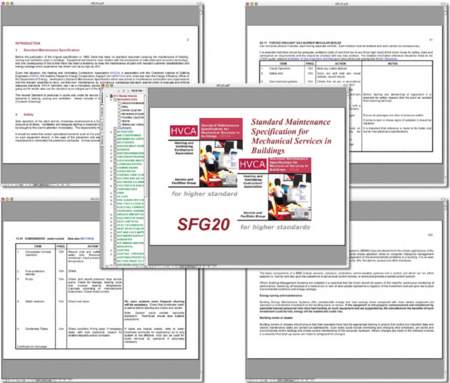The importance of a sound maintenance policy — and delivering it

The importance of maintenance — Peter Excell.
The maintenance of building services can be realistically prioritised, accurately budgeted for, and reliably delivered, as Peter Excell explains.he maintenance of building services, already a huge responsibility, is under increasing pressure from legislators. With the Corporate Manslaughter Act coming into force this April and the requirement to display Energy Performance Certificates for buildings from April, it is more important than ever for landlords and tenants to introduce auditable maintenance regimes for their buildings and to be able to prove compliance with regulations. Another important consideration for a business is its buildings’ running costs. These can actually increase over the medium to long term if corners are cut in maintenance schedules for short-term savings. In some instances, inadequate maintenance can have even more serious consequences than unanticipated repair and replacement costs. Equipment failures can interrupt productivity, damage profitability and even cost lives. Skimping on maintenance is a false economy, but you can prioritise the budget allocated to it. In shaping a building maintenance policy, you may find it helpful to weigh-up priorities under the following five category headings. 1. Legal requirements. There is no choice here. Your maintenance policy must ensure compliance with statutory and legal obligations — otherwise you are liable to penalty and prosecution. 2. Business-critical systems. In some circumstances, maintenance failures can critically affect the business occupying the building. In an office block, failure of the electrical systems for computer rooms could result in severe disruption, downtime in productivity, and lost revenue. In hospitals, maintenance is even more critical — for example, in ensuring the total reliability of back-up generators for life-support machines. So here, too, there is no choice. Where plant and equipment are business-critical, it is essential to take all necessary measures to ensure reliability through maintenance. 3. Recognised best practice. In planning your building maintenance policy, you do not have to re-invent the wheel. Others have had to make similar decisions before you, and their years of experience have shaped guidelines to best practice. I recommend the industry standard, ‘SFG20 — standard maintenance specification for building services,’ a web application developed and published by the Heating & Ventilating Contractors’ Association (HVCA). Following best practice will not only ensure you comply with regulations, but will also help you reduce energy consumption and costs. 4. Life cycle costing. When the time comes to replace capital equipment, there may be more to the picture than first meets the eye. It can be worth accepting a higher front-end cost for plant in exchange for a payback over time in reduced energy or repair costs. 5. Discretionary tasks. You can take a view on whether or not to take some maintenance measures, depending on where your building is in its life cycle. To give one example, it might be the scheduled time to replace an extract fan, but if your building is nearing the end of its life and the fan’s replacement is not business-critical or a regulatory requirement, you could opt to leave it unchanged. In making these discretionary judgements, however, it is important to resist the temptation to make the sort of short-term cost savings that, in the longer term, store-up greater costs.
 |
Comprehensive maintenance schedules devised for building-services plant and systems are available online via an interactive web-based service. |
To assess maintenance needs under these five headings, it will be necessary to draw-up a list of ‘what ifs’ about potential equipment failures. By answering these questions honestly, you will be able to prioritise your maintenance budget. If necessary, you might consider cost cutting by extending the life of equipment or by increasing the maintenance frequency — but never where maintenance is required by regulation or is business- critical, and preferably not where best practice will save you costs over the medium or long-term. If delivery of your maintenance policy is outsourced to specialist contractors, they should be approved and accredited by the Heating & Ventilating Contractors’ Association. Many contractors rely on the maintenance schedules defined by SFG20, widely regarded as the industry standard for businesses or individuals responsible for maintaining, managing, or specifying the maintenance of building services. Now an interactive web-based service, HVCA SFG20 gives definitive and detailed maintenance schedules for heating and pipework systems, ventilating and air-conditioning, controls (including building and energy management systems), ancillaries, plumbing, sewerage systems and electrics in buildings, including power supplies and associated electrical equipment up to 415 V. Applying the standards and procedures detailed in HVCA SFG20 will ensure safe and efficient operation of building services. As someone with more than three decades’ board-level experience in the facilities-management industry, I know it has never been more important to get it right!
Peter Excell is development director of Platinum Facilities & Maintenance Services and chairman of the HVCA’s Service & Facilities Group.
Related links:










